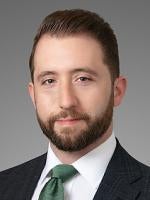The once-novel medium of telehealth surged onto the stage as a common sense solution to the COVID-19 pandemic. This surge was facilitated, in part, by certain flexibilities authorized by the Centers for Medicare & Medicaid Services in its response to the public health emergency (“PHE”) declared in March of 2020 and which was repeatedly renewed until now. On January 30, 2023, President Joe Biden announced that the PHE would end on May 11, 2023. As the curtains are drawn on the PHE, there can be no doubt that telehealth is here to stay. In light of that reality, it is essential that participants in the telehealth space understand what flexibilities will remain in play.
On December 29, 2022, President Biden signed into law the Consolidated Appropriations Act, 2023 (the “Act”),[1] a $1.7 trillion omnibus spending bill intended to fund the U.S. federal government. Among the Act’s many provisions are certain measures that extend the telehealth flexibilities announced in the early days of the PHE through the end of 2024. The extensions afforded by the Act are all the more important now that the PHE is set to expire in the coming months.
By way of example, some of the most significant flexibilities to be extended include:
-
Definition of “Originating Site”: The Act extends the definition of “originating site” to mean any site in the U.S., including the home of an individual.[2] An “originating site” is the location at which the telehealth eligible individual is located at the time the service is furnished via a telecommunications system.[3]
-
Definition of “Practitioner”: The Act extends the definition of “practitioner” to also include a qualified occupational therapist, qualified physical therapist, a qualified speech-language pathologist, and a qualified audiologist.[4] Prior to the PHE, a “practitioner” was limited to a physician assistant, nurse practitioner, clinical nurse specialist, certified registered nurse anesthetist, certified nurse-midwife, clinical social worker, clinical psychologist, and registered dietitian or nutrition professional.[5]
-
RHC and FQHC Telehealth Services: The Act extends the authorization for Rural Health Clinics (“RHCs”) and Federally Qualified Health Centers (“FQHCs”) to provide and reimburse for telehealth services.[6]
-
In-Person Visit Requirement for Telehealth Mental Health Services: The Act delays the reimbursement requirement for physicians and practitioners to conduct in-person exams within six months before an initial telehealth service for purposes of diagnosis, evaluation, or treatment of a mental health disorder until January 1, 2025, or the first day after the end of the PHE, whichever date occurs later.[7]
-
Audio-Only Telehealth: The Act provides that telehealth services furnished using audio-only telecommunications technology will continue to be covered and reimbursable.[8]
-
Recertification of Eligibility for Hospice Care: The Act extends the permissible use of telehealth for conducting face-to-face encounters prior to recertification of eligibility for hospice care.[9]
-
HDHP/HSA Safe Harbor for Telehealth Services: For plan years beginning between December 31, 2022 and January 1, 2025, the Act extends the ability of health savings account-qualifying high-deductible health plans to cover telehealth services on a pre-deductible basis.[10]
Key Takeaways
Although many telehealth flexibilities will continue well into 2024, telehealth providers are still under heightened scrutiny as outlined in the U.S. Department of Health and Human Services Office of Inspector General Special Fraud Alert issued in July 2022, which urged practitioners to exercise caution when entering telemedicine arrangements.[11] It is more important than ever that telehealth providers be mindful of their compliance obligations as they transition to a post-PHE world.
FOOTNOTES
[1] H.R. 2617, 117th Congr. (2022).
[2] H.R. 2617 § 4113(a)(2).
[3] 42 U.S.C. § 1395m(m)(4)(C).
[4] H.R. 2617 § 4113(b).
[5] 42 U.S.C. 1395m(m)(4)(E).
[6] H.R. 2617 § 4113(c).
[7] H.R. 2617 § 4113(d)(1).
[8] H.R. 2617 § 4113(e).
[9] H.R. 2617 § 4113(f).
[10] H.R. 2617 § 4151.
[11] Special Fraud Alert: OIG Alerts Practitioners To Exercise Caution When Entering Into Arrangements with Purported Telemedicine Companies, available at Special Fraud Alert–Telefraud (hhs.gov); see also Recent Developments in Telehealth Enforcement, available at Recent Developments in Telehealth Enforcement | Healthcare Law Blog (sheppardhealthlaw.com).





 />i
/>i
